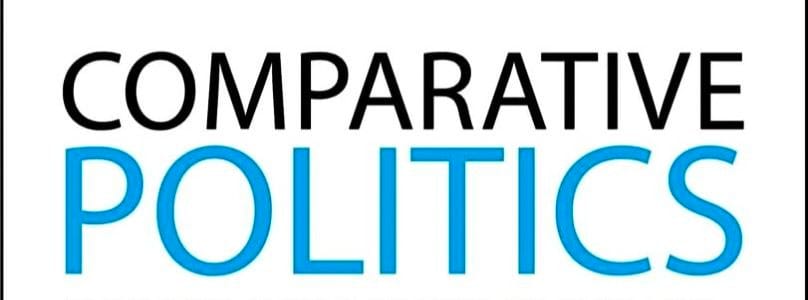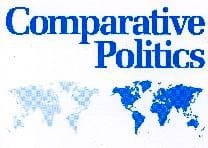
Traditional approaches in the study of Comparative Politics refer to methods and frameworks used prior to the mid-20th century, mainly focusing on normative, philosophical, and historical analysis. These approaches are less empirical and more descriptive, emphasizing formal institutions, legal structures, and historical patterns rather than behavioral analysis or empirical data.
Key Traditional Approaches in Comparative Politics :
1. Institutional Approach
- Focus: This approach centers on the study of political institutions such as constitutions, legislatures, executives, judiciaries, and electoral systems.
- Objective: The goal is to understand how political institutions are structured, their roles and functions, and how they influence political outcomes.
- Method: It typically involves detailed analysis of formal political organizations and legal frameworks.
- Criticism: This approach often ignores informal political behavior, social forces, and the influence of non-state actors, focusing too narrowly on formal structures.
Example: Comparing the parliamentary system of the United Kingdom with the presidential system of the United States in terms of the powers and responsibilities of the executive branch.
2. Legal Approach
- Focus: The legal approach is closely related to the institutional approach but emphasizes the legal framework and constitutional laws governing political institutions.
- Objective: It seeks to understand the role of law in the political process, including how constitutions are interpreted and the role of courts in shaping politics.
- Method: Analyzing legal documents such as constitutions, laws, and treaties, focusing on how they influence the political system.
- Criticism: This approach can be overly formalistic, not taking into account political realities, power dynamics, and informal political practices that influence how laws are applied.
Example: Studying how different constitutional courts (like the U.S. Supreme Court or Germany’s Constitutional Court) shape political decision-making in their respective countries.
3. Historical Approach
- Focus: The historical approach examines the evolution of political institutions and systems through history.
- Objective: Understanding contemporary political systems through the study of their historical development and context.
- Method: Detailed historical analysis of events, movements, and institutions to explain current political structures.
- Criticism: This approach may overemphasize historical continuity, giving less attention to changes and dynamics in contemporary political behavior.
Example: Analyzing the development of modern European nation-states by looking at the Treaty of Westphalia (1648) and how it shaped the political map of Europe.
4. Philosophical Approach
- Focus: The philosophical approach involves the normative study of political ideas, concepts, and ideologies, drawing heavily from political philosophy.
- Objective: To examine political systems through the lens of ethical values, justice, freedom, and equality, using philosophical reasoning to understand political concepts.
- Method: Engaging with political thinkers such as Plato, Aristotle, Machiavelli, Locke, Rousseau, and others to evaluate the moral and ethical foundations of political systems.
- Criticism: It tends to be abstract and theoretical, often lacking empirical analysis and focusing on what political systems should be rather than what they actually are.
Example: Discussing the concept of democracy by comparing the ideas of John Locke (liberal democracy) and Jean-Jacques Rousseau (direct democracy).
5. Normative Approach
- Focus: The normative approach is concerned with evaluating political systems and institutions based on ethical or moral principles.
- Objective: To identify what constitutes a “good” political system and how political systems should be structured and behave to achieve justice, fairness, and the common good.
- Method: Analyzing political systems based on subjective criteria such as justice, freedom, or equality, often relying on philosophical argumentation.
- Criticism: It is subjective and lacks empirical rigor, as it evaluates political systems based on what they should be rather than analyzing them objectively.
Example: Evaluating political systems based on how well they promote individual liberty and social justice, comparing, for example, liberal democracy versus socialist political models.
6. Structural Approach
- Focus: This approach analyzes the formal and informal structures that constitute political systems, such as government branches, parties, and bureaucracies.
- Objective: To understand how the structure of political systems affects their stability, efficiency, and ability to respond to societal needs.
- Method: It looks at the components of political systems and examines their relationships and interactions.
- Criticism: While comprehensive, it can overlook the role of individual agency, cultural factors, and political behavior outside of formal structures.
Example: Analyzing the structure of a federal system, like the division of powers between states and the central government in the U.S. or Germany.
7. Descriptive Approach
- Focus: This approach primarily describes and catalogs political systems and institutions without focusing heavily on theory or explanation.
- Objective: To provide a detailed account of how different political systems function.
- Method: Describing political institutions, laws, and political practices across various countries.
- Criticism: It can be overly descriptive, failing to offer analytical depth or causal explanations for political phenomena.
Example: Describing the political systems of countries like India, the UK, or Brazil by detailing their election processes, government structures, and party systems.

Criticism of Traditional Approaches:
While traditional approaches have contributed significantly to the development of Comparative Politics, they have been criticized for several reasons:
- Overemphasis on Formal Structures: Traditional approaches often focus on formal political institutions, neglecting informal political behavior, social dynamics, and non-institutional actors.
- Lack of Empirical Analysis: These approaches are often descriptive and normative, providing little empirical analysis of how political systems function in practice.
- Limited Scope: Traditional approaches may ignore newer political phenomena such as globalization, social movements, political behavior, and technological influences.
- Ethnocentrism: Many traditional approaches were developed in Western countries and often fail to account for the diverse political systems and cultures outside of the Western world.
Conclusion:
Traditional approaches laid the groundwork for the study of Comparative Politics by offering frameworks for understanding political institutions, laws, and historical development. However, they have been supplemented and critiqued by modern approaches that emphasize empirical analysis, political behavior, and the importance of informal political processes. These approaches provide valuable insights into the formal aspects of political systems but are complemented by newer methods that focus on dynamics, change, and behavior in contemporary political environments.
